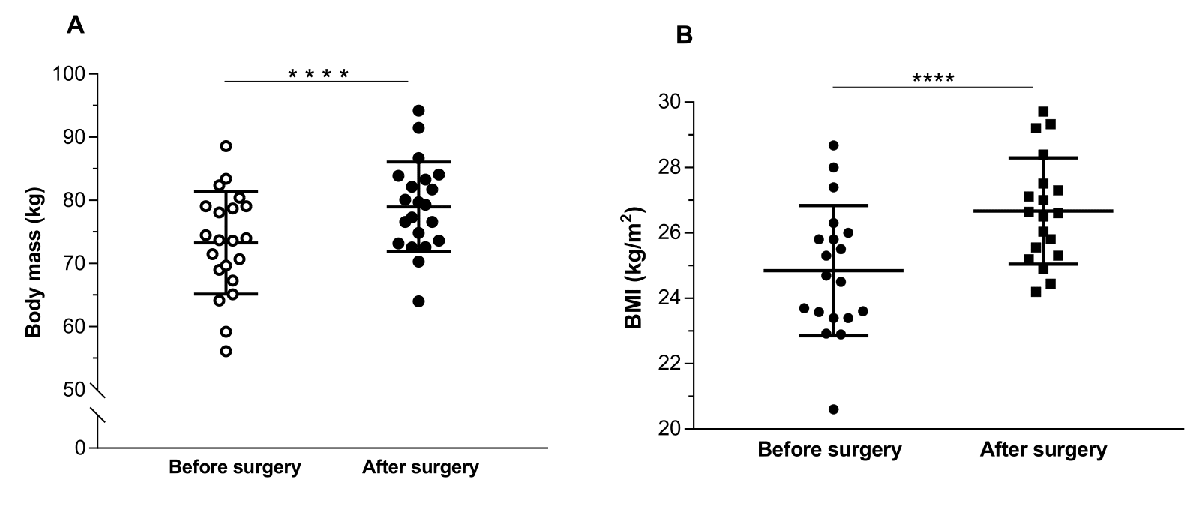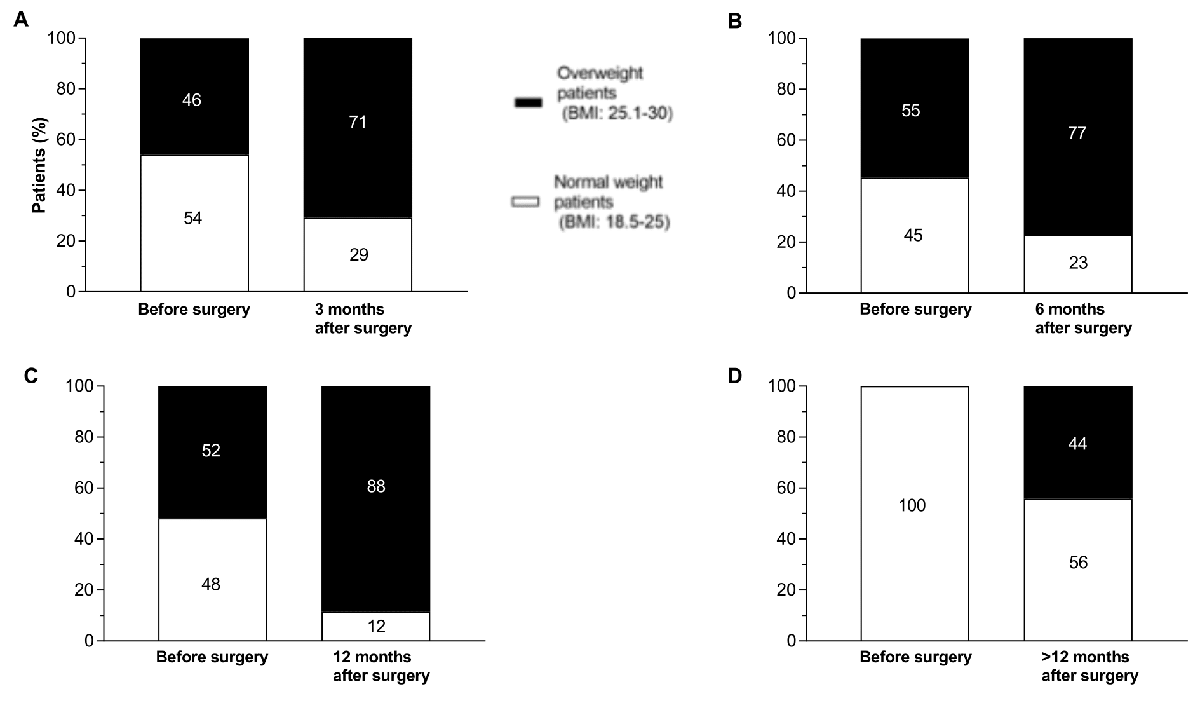Session Information
Date: Tuesday, September 24, 2019
Session Title: Parkinsonisms and Parkinson-Plus
Session Time: 1:45pm-3:15pm
Location: Agora 3 West, Level 3
Objective: To investigate the extent and time course of body mass gain after subthalamic nucleus (STN) deep brain stimulation (DBS) in Parkinson’s disease (PD) patients.
Background: DBS of the STN has become a well-established therapy in advanced PD for managing severe motor complications. However, a remarkable body mass gain can occur after STN DBS, which may at least partly counteract the positive effects of motor improvement.
Method: For this systematic review, a computerized search for relevant articles was performed in MEDLINE, Cochrane Library, Clinical Trials, and Livivio against a priori inclusion and exclusion criteria. Body mass (BM) and body mass index (BMI) were considered as main outcome parameters. The effect size for BM and BMI changes were described by Cohen’s d. Variables associated with changes in the main dependent variables were analyzed by Pearson correlation.
Results: Following application of these criteria, 38 out of 154 studies remained and were included in this review yielding a total sample size of 979 PD patients with STN DBS with a mean age across studies of 59.0±7.5 years (range, 54.9-66.0 years). Considering the longest follow-up time for each study, BM and BMI showed a mean increase across studies of 5.7 kg (p<0.0001; d=0.64) and 1.8 kg/m² (p<0.0001; d=0.78). [figure1] We analyzed the time course of BM gain after surgery and detected a continuous increase in BM ranging from 2.9 kg (d=0.69) at 3 months, 3.9 kg (d=0.21) at 6 months, 6.4 kg (d=0.72) at 12 months, and 6.1 kg (d=1.02) above 12 months of stimulation. BMI increased by 1.00 kg/m² at 3 months (p<0.001; d=1.08), by 1.57 kg/m² at 6 months (p<0.001; d = 0.87), by 2.12 kg/m² (p=0.004; d=2.14) at 12 months, and by 1.97 kg/m² (p=0.080; d=1.65) above 12 months of stimulation. [figure2] In search for predictive factors of body weight gain after surgery, we performed a correlation analysis. Change in BM was correlated with age (r=-0.4239, p=0.031). Regarding the symptoms of PD, mean change in BMI was positively correlated with mean change in LEDD (r=0.440, p=0.0231) and with mean change in UPDRS III scores (r=0.502, p=0.010).
Conclusion: Our review clearly demonstrates a massive BM gain following STN DBS. In light of these findings and considering the negative health implications of obesity we recommend the development of tailored therapies to prevent obesity and associated metabolic disorders following STN DBS surgery.
To cite this abstract in AMA style:
J. Steinhardt, T. Münte, S. Schmid, B. Wilms, N. Brüggemann. Body Mass Gain in Parkinson’s Disease Following Deep Brain Stimulation: A Systematic Review [abstract]. Mov Disord. 2019; 34 (suppl 2). https://www.mdsabstracts.org/abstract/body-mass-gain-in-parkinsons-disease-following-deep-brain-stimulation-a-systematic-review/. Accessed February 3, 2026.« Back to 2019 International Congress
MDS Abstracts - https://www.mdsabstracts.org/abstract/body-mass-gain-in-parkinsons-disease-following-deep-brain-stimulation-a-systematic-review/


